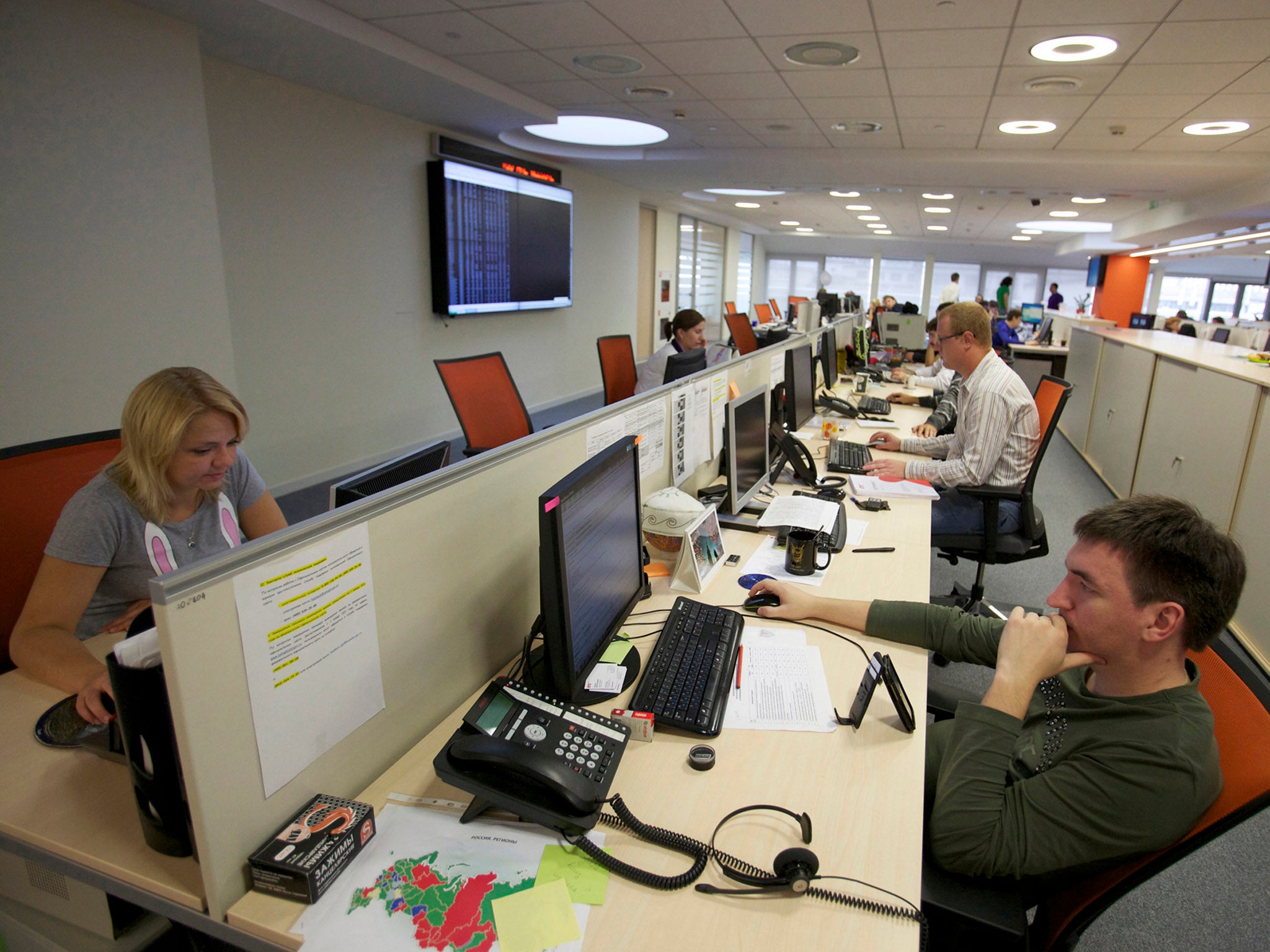Russian traders lose to cows as winter crimps Moscow market

Your support helps us to tell the story
From reproductive rights to climate change to Big Tech, The Independent is on the ground when the story is developing. Whether it's investigating the financials of Elon Musk's pro-Trump PAC or producing our latest documentary, 'The A Word', which shines a light on the American women fighting for reproductive rights, we know how important it is to parse out the facts from the messaging.
At such a critical moment in US history, we need reporters on the ground. Your donation allows us to keep sending journalists to speak to both sides of the story.
The Independent is trusted by Americans across the entire political spectrum. And unlike many other quality news outlets, we choose not to lock Americans out of our reporting and analysis with paywalls. We believe quality journalism should be available to everyone, paid for by those who can afford it.
Your support makes all the difference.Russian Prime Minister Dmitry Medvedev's efforts to give his citizens a better night's sleep and ease stress for the nation's farm animals are undermining his push to make Moscow a global financial centre.
Trading of Micex Index stocks has dropped 15 percent in Moscow since Oct. 28, when London rolled back its clocks by one hour for daylight savings and Russia left its time unchanged, according to data compiled by Bloomberg. Turnover in 10 Russian companies with London listings rose 19 percent in the British capital, Europe's financial hub.
The difference between clocks in London and Moscow grew to four hours from three after Medvedev ended Russia's switch to winter time last year, saying it disrupts the "biorhythm" of people and confuses milk cows. The change has cut liquidity for stocks in Moscow and hurt Russia's efforts to boost the role of finance in its oil-dependent economy, according to hedge fund Verno Capital. It also means longer hours for traders who buy and sell shares in both cities.
"Traders are stressed out," Dmitry Ryzhkov, the vice president of equity sales at Alfa Bank in Moscow, said in a Nov. 13 phone interview. His workday has increased to 12 hours from 11 hours before Oct. 28. "I would very enthusiastically support the return to time changes."
The government may decide by next month whether to revive the clock switching, Sergey Kalashnikov, a Russian lawmaker who submitted a bill to parliament that would reinstate the winter time, said by phone on Nov. 13. President Vladimir Putin, who swapped jobs with Medvedev in March, said at a Sept. 25 press conference that policy makers are reviewing the issue.
It's important for time differences to "get more predictable," Alexander Afanasiev, chief executive officer of the Moscow Exchange, said at an investor conference in London on Nov. 13. Natalya Timakova, Medvedev's press secretary, declined to comment by email on Nov. 13.
Micex trades slumped to an average 37 billion shares in the 11 days after the time gap with London widened, from 43 billion in the previous 11 days, according to data compiled by Bloomberg. The 15 percent slump this year compares with a 27 percent drop to 42 billion shares during the same period of 2011, the first year Medvedev's policy came into effect.
Foreign investors own about 66 percent of Russian shares available for trading, Citigroup said in an Aug. 29 report.
"The time difference is responsible for the low volumes" in Russia, Andrey Vashevnik, who manages $25 million as chief investment officer at R&B Investment Fund in Moscow, said by phone on Nov. 12. "It prevents people from doing bigger trades in the morning."
Medvedev, who made finance a cornerstone of his plan to diversify Russia's $1.9 trillion economy, said in February 2011 he was ending a 30-year system of switching to winter time to reduce stress associated with the change.
It "really disrupts the human biorhythm, it's annoying," Medvedev said in comments broadcast on state television channel Rossia 24 on Feb. 8, 2011. "Not to mention the poor cows and other animals that don't understand the time switch and don't understand why the milkmaids come to them at a different time."
Vladimir Cheverov, director of the milk processing department at the Moscow-based Russian Milk Producers Union, said he supports Medvedev's decision to cancel the time change.
"For us, any kind of departure from the natural time cycle creates additional difficulties, costs," Cheverov said. "The cow doesn't have a watch, she doesn't change the time."
Medvedev's decision is falling out of favor with the public. Twenty-nine percent of the 1,600 Russians surveyed by the government in September said they had a negative view on the cancellation of winter time, up from 6 percent in February 2011.
The proportion with a positive view fell to 35 percent from 73 percent, according to the poll by the state-run All-Russian Center for the Study of Public Opinion, or VTsIOM, which had a margin of error of plus or minus 3.4 percentage points.
"The rest of the world switches time and the people and cattle there are OK," Slava Rabinovich, chief executive officer at Diamond Age Capital Advisors in Moscow, which manages $210 million in Russian assets, said by phone on Nov. 13. "The well- being of cows and people isn't a convincing argument."
Patterson reported from London. Contributors: Lyubov Pronina and Maria Levitov in London and Marina Sysoyeva, Ilya Arkhipov and Scott Rose in Moscow.
Subscribe to Independent Premium to bookmark this article
Want to bookmark your favourite articles and stories to read or reference later? Start your Independent Premium subscription today.
Join our commenting forum
Join thought-provoking conversations, follow other Independent readers and see their replies
Comments